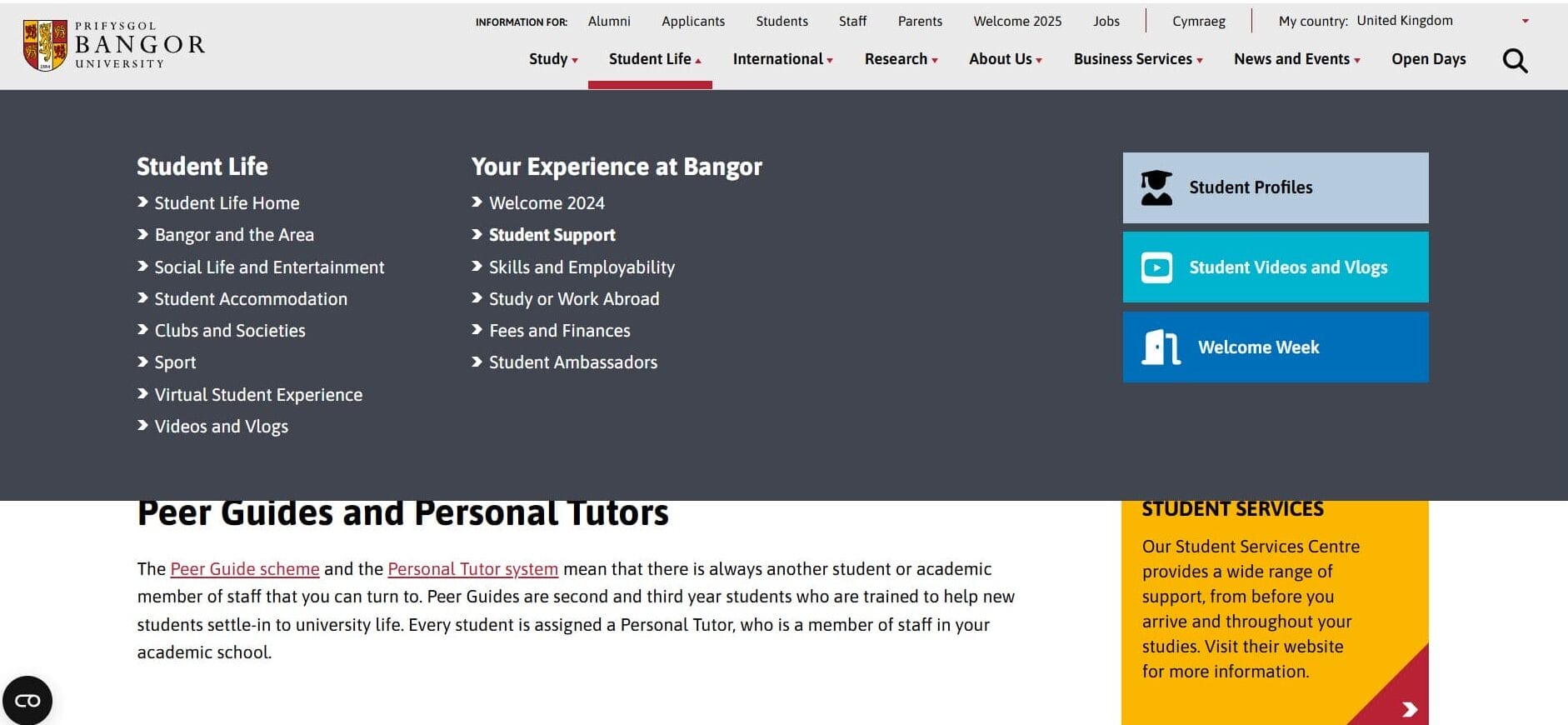
Life at university is an exciting and challenging time; it’s filled with academic demands, personal growth as you move away from home for the first time, and social transitions. Establishing a strong support network can be really useful in maintaining balance, academic success, and social life. Here are some tips to help you build your own network of support whilst at university.
Connect with students
Forming friendships and study groups with classmates and other students can be useful for academic and emotional support. Try and engage in seminar/workshop discussions, join study groups, and try meet as many people as you can. It can be daunting trying to make friends in university, but there are plenty of ways to make friends during your time there. Building a network of peers is important!
I was absolutely terrified in my first year, but I found asking people for the social media handles after seminars and workshops really helped. That way, I was able to contact them, I started off messages with something related to what we’d discussed in class, that way it was easier to engage with them.
Try challenge yourself and sit next to someone new every lecture or seminar and introduce yourself! A lot of other people are in the same boat as you.
You don’t necessarily have to have a large group of friends, but having a few close friends really helps to build a good network of support and definitely makes university better!

Get to know your neighbours
Living with flatmates is an exciting part of your first year of university life. Building a good relationship with them can enhance your support system. Communicate with your neighbours openly, establish boundaries, and try participate in activities together. Having a supportive flat can offer support when you need it.
See here for more tips on getting to know your new flatmates.
University resources
Universities have a variety of resources on offer to support students. Take advantage of it! Universities have study support advisors, career advisors, mental health advisors, counsellors, student organisations etc.
On your university website, there should be an option under ‘Student Life’ that will take you to any available support. I know this is quite overwhelming and can be difficult to navigate. If you’re struggling, then email your university’s student services/admin email. Or you can contact your personal tutor. They’ll be able to put you in contact with the right service for you.

The above photo is an example of how you might find the right support, obviously this will differ slightly from University to University, but it’s just an idea of how you may find the right support to add to your network.
If you’re still not sure, websites like Student Minds can help you build a support network, along with this, there are useful links for support available to university students.
Either way, it’s important to keep a list of available internal and external contacts on hand. That way, you have a network of support to go to for help if you need it.
Join societies
Universities have a wide range of different societies that you can join, whether it be a sports society, a hobby related society, or a Scouting/Guiding society. There’s a lot of different choices and they’re a great way to meet like-minded people and build up a support network. Societies are a great outlet for fun and creating a sense of belonging. Societies tend to have weekly/bi-weekly meetings and sometimes social nights which might involve going out to the club or something. The best way to see what societies are on offer at your university is through Freshers Fairs, or your Student Union website, there will be a list of what’s available.
There are some weird societies on offer at universities such as the Louis Theroux Society in Cardiff University.

Family and friends
Although university life is busy, new, and exciting, maintaining contact with your family and friends from home is great for support. Regular calls, texts, visits etc can help you feel grounded and supported, even if they’re far away.
Going home at the weekend sometimes to visit friends or family helps provide emotional stability, and you know you have people you can reach out to if you need it whilst at university.
Mentorship
Some universities have Peer Guides/Mentors. These are extremely useful as they can provide support, guidance, and point you in the right direction if you need further help.
Peer Guides/mentors can meet with you and support you with the support you need to fully enrich your university support.
Peer Guides/mentors are usually 2nd or 3rd year students. They are assigned to a group of students that are on the same course as them and can be a great addition to your support network.
Usually, they reach out to you during Freshers week, but you can find their contact either by looking on your student profile, or emailing your personal tutor.

Prioritise your wellbeing
A vital part of your support system in university includes looking after yourself and taking care of your mental health. Make use of the mental health services your university has to offer. Ensure you maintain a good balance, don’t overwork and overstress yourself.
There are also a lot of resources online that support and advise students. It may be useful to make a list of websites that can give advice or offer support so that you have it at hand if you need support. Websites like Student Space and Samaritans can offer a lot of support.
The charity Mind put together a list of useful contacts, so it might be worth bookmarking a few of those.
Be a supportive friend
Support networks are reciprocal. If you’re a good listener and offer to help others, you then create a stronger bond. If you’re supportive towards your peers, your support network will strengthen as they’ll support you too.
Often, universities offer training for those who want to learn how to properly support someone. For example, Bangor University offers ‘Look after your mate’ training. This enables you to properly support those around you when they’re in need.
Building a support network at university requires effort, but the support is invaluable. Actively seeking meaningful connections, using resources, and maintaining contact with those at home, allows you to create a network that sustains academic and personal success. A supportive community around you can provide motivation, stability, and makes uni life more fun and bearable. Investing in relationships with flatmates and peers can help foster a sense of belonging that can increase your well-being. Make sure you are open to new experiences and also reciprocate support as it is essential to creating strong bonds.
Ultimately, a well-rounded system of support in university helps you with personal and professional growth. Proactively making connections, being engaged with the community, and seeking guidance really does set you up for long-term success. Through friendships, mentorships, or institutional resources, your support network enhances your academic career and equips you with skills and support to guide you through your course and beyond.
Authors
-
I'm a BA English Literature student at Chester University! I enjoy writing a mix of poetry, short fiction, and journalism– I'm a featured poet in a handful of anthologies.
View all posts
-
Aminah is a dedicated content expert and writer at Unifresher, bringing a unique blend of creativity and precision to her work. Her passion for crafting engaging content is complemented by a love for travelling, cooking, and exploring languages. With years spent living in cultural hubs like Barcelona, Sicily, and Rome, Aminah has gained a wealth of experiences that enrich her perspective. Now based back in her hometown of Manchester, she continues to immerse herself in the city's vibrant atmosphere. An enthusiastic Manchester United supporter, Aminah also enjoys delving into psychology and true crime in her spare time.
View all posts


